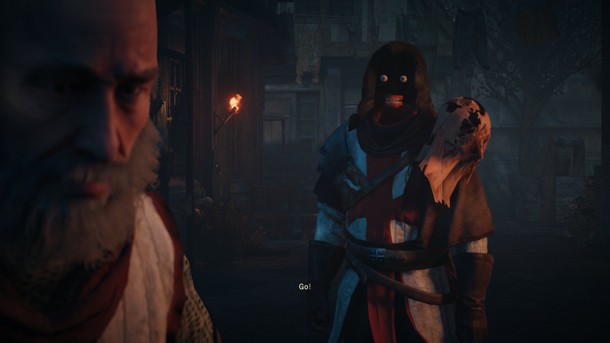Opinion – Bugs Happen, Broken Games Shouldn’t

While 2014 has seen its share of delays, we certainly have no shortage of games available this holiday season. Unfortunately, in the flood of releases, multiple titles have simply not worked at launch.
The relationship between a consumer and a game changes when launch day arrives. The long period represented by the initial reveal, the buildup of excitement, and that final push toward release are about making promises to the customer. Once that game goes live, it’s time for the publisher and the developer to prove out the commitments made by the marketing department. Too often lately, these companies have failed to fulfill their part of the $60 bargain.
To be clear, not every bug is a monumental failure. Games are enormous constructs representing the work of often hundreds of people. But when a game has so many issues that it barely functions (or, in some cases, doesn't function), the system falls apart.
Today, Ubisoft revealed that a “serious crash” on all three platforms is caused by the simple act of adding a contact via the in-game social features. This follows problems with the mobile companion app, Initiates website, visuals, and the game world itself.
Microsoft and 343 Industries are still in the process of fixing Halo: The Master Chief Collection. The game is still not performing as promised in terms of matchmaking, with multiple playlists removed to help ease the issues.
Driveclub, Sony’s delayed launch title, still isn’t working at intended capacity. Evolution Studios hasn’t delivered the promised PlayStation Plus version, and it’s not clear when that will happen.
This year also saw problems with World of Warcraft: Warlords of Draenor’s launch (though at least those were repaired quickly and attributed to an enormous uptick in subscriptions), NBA 2K15, Destiny on college campuses, and even lingering issues from last year’s release of Battlefield 4.
That’s not to say that every game has stumbled. Call of Duty: Advanced Warfare launched relatively smoothly, EA Sports titles were largely unaffected, Forza Horizon 2 performed well, and others sailed through launch with minimal issues.
In a year that has become synonymous with delays, to have so many of the remaining titles stumble out of the gate is a problem. Not only are individual publishers harmed by tarnishing their valuable brands, but consumer confidence takes a hit. The gaming industry relies on the enthusiasm of early purchasers. It depends on past success to motivate unquestioned sales of inevitable sequels. It's one thing for publishers to sell games based on good will, it's another entirely to ask consumers to extend that faith to fixing games that simply don't work.
I find it hard to believe that developers and publishers were in the dark on every one of these problems prior to release, waiting for unlucky consumers to bring them to light. And if some of these larger problems, like Driveclub's utter failure to deliver on its connected experience were, in fact unknown? That's an even bigger cause for concern at every level of the process.
In finance, we talk about “time value of money,” that a dollar now is worth more than a dollar later. But if the revenue that comes in this year is the last a consumer is willing to spend on a series or even a publisher, is it worth rushing the game to market? Some publishers are going to find out that the answer is “no.”
Image courtesy Steam user "Retro_Apocalypse"

Get the Game Informer Print Edition!
Explore your favorite games in premium print format, delivered to your door.
- 10 issues per year
- Only $4.80 per issue
- Full digital magazine archive access
- Since 1991









